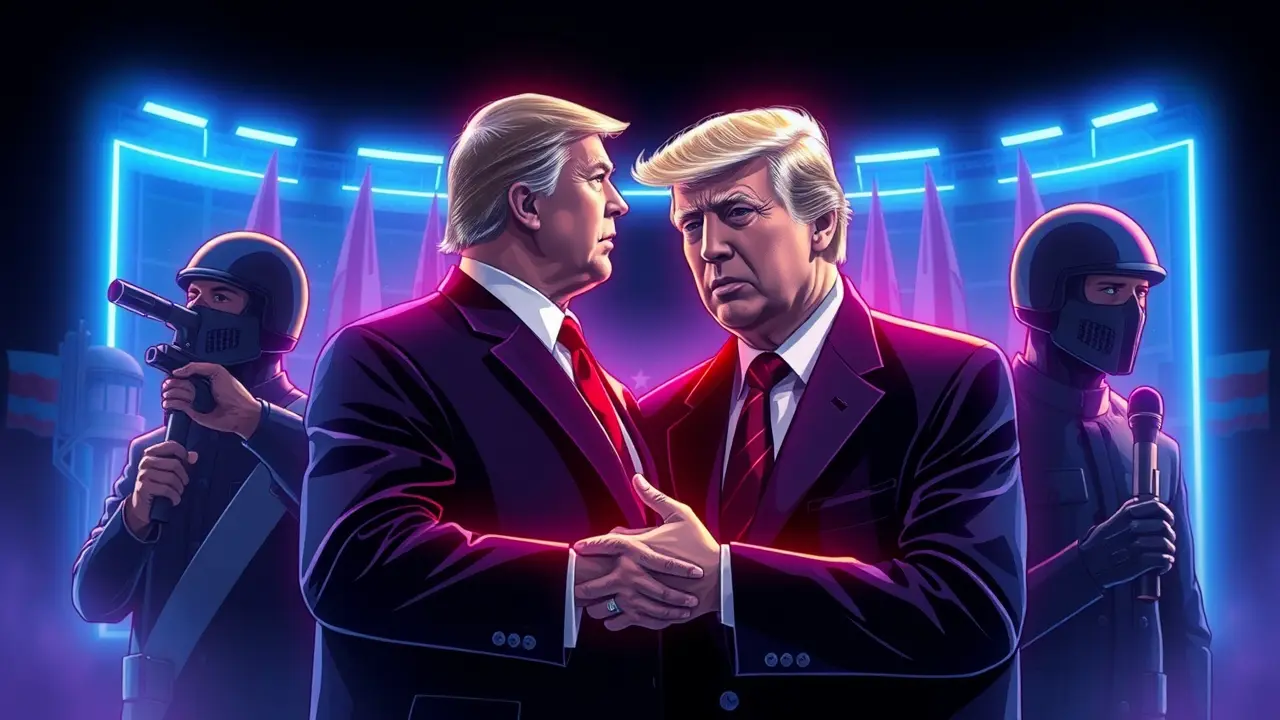Trump's Gaza ceasefire role decisive but not a peace roadmap.
The recent diplomatic foray into the Middle East by former President Donald Trump, while framed by his camp as a decisive victory lap culminating in a Gaza ceasefire, should be viewed with the sober skepticism that history demands, for the grim annals of international conflict are not so easily rewritten by the sheer force of a single personality, no matter how potent. To understand the true weight of this moment, one must look beyond the staged handshakes and triumphant declarations, drawing a stark parallel to the grand, yet ultimately fragile, peace accords of the past, such as the Camp David agreements, which while monumental in their day, required decades of intricate, grinding diplomatic follow-through to maintain even a semblance of stability—a lesson seemingly lost in the current spectacle.The immediate cessation of hostilities is, of course, a humanitarian imperative and a welcome respite for civilians caught in the crossfire, but seasoned analysts and regional experts, whose voices are often drowned out by the media circus, are already sounding the alarm that this temporary halt lacks the foundational architecture for a lasting peace, missing critical components like a credible pathway for Palestinian statehood, the disarmament of militant factions, and a multilateral framework involving all regional stakeholders, not just the unilateral pronouncements of an American figure. This intervention, while showcasing Trump's enduring political clout and his ability to command a stage, echoes the high-risk, high-reward strategies of leaders like Winston Churchill, who understood that true peace is not a photo opportunity but a painstakingly built edifice; without addressing the root causes of the conflict—the entrenched political divisions, the humanitarian crisis in Gaza, and the profound lack of trust between the parties—this ceasefire risks becoming merely an intermission, a temporary calm before an inevitable and potentially more devastating storm.The consequences of this approach are profound, potentially reshaping the geopolitical chessboard by empowering certain actors while marginalizing others, altering the dynamics of U. S.influence in the region, and setting a precarious precedent where complex international disputes are treated as transactional victories rather than problems requiring nuanced, sustained resolution. In the final analysis, while the guns may have fallen silent for now, the hard, unglamorous work of building a genuine and durable peace remains entirely undone, a task far beyond the scope of any single presidential decree or victory lap.
Latest News
The charts are whispering what the true believers have felt in their bones for weeks—Dogecoin is carving out a bottom.
17 hours ago5 comments
The Institute for Fiscal Studies has thrown a stark warning onto Rachel Reeves's desk, urging the Chancellor to confront a potential £22 billion shortfall in
17 hours ago3 comments
Alright, let's break down this absolute heater of a performance from the Chicago Blackhawks, because if you missed this one, you missed a party.
18 hours ago5 comments
The ice was hot last night in the NHL, folks, serving up a slate of games that felt less like a regular season Tuesday and more like a playoff preview with a
18 hours ago3 comments
The XRP chart is painting a tantalizing picture for those with the stomach to withstand the relentless pressure from crypto's leviathans.
18 hours ago4 comments
It’s in the small shifts, the quiet recalibrations of a Thursday morning, where the most meaningful change often takes root.
18 hours ago4 comments
In a move that sent ripples of quiet confidence through the crypto ecosystem, blockchain intelligence firms tracked a monumental treasury allocation from
18 hours ago4 comments
In a move that would have drawn a nod of approval from historical figures like Churchill, who understood the delicate balance of power within democratic
18 hours ago2 comments
MA
Maya Chen123k1 day ago
reading this at 3 am and it feels like a metaphor for everything idk maybe i just need sleep but this all seems so fragile
0
FR
Frank Reynolds123k1 day ago
this feels so familiar, reminds me of the same cycle of hope and disappointment we saw back in the 90s tbh. everyone wants the big win but nobody wants to do the hard work after the cameras leave
0
JA
Jake Miller123k1 day ago
oh great another 'historic' peace deal that's gonna last a whole 5 minutes 😂 tbh this feels like putting a band-aid on a volcano
0
JA
Jamie Wilson123k2 days ago
tbh this just feels like another temporary fix smh we've seen this movie before and it never ends well
0
CH
Chloe Miller123k2 days ago
tbh this all feels like a temporary fix again, not sure how they expect this to last smh
0
